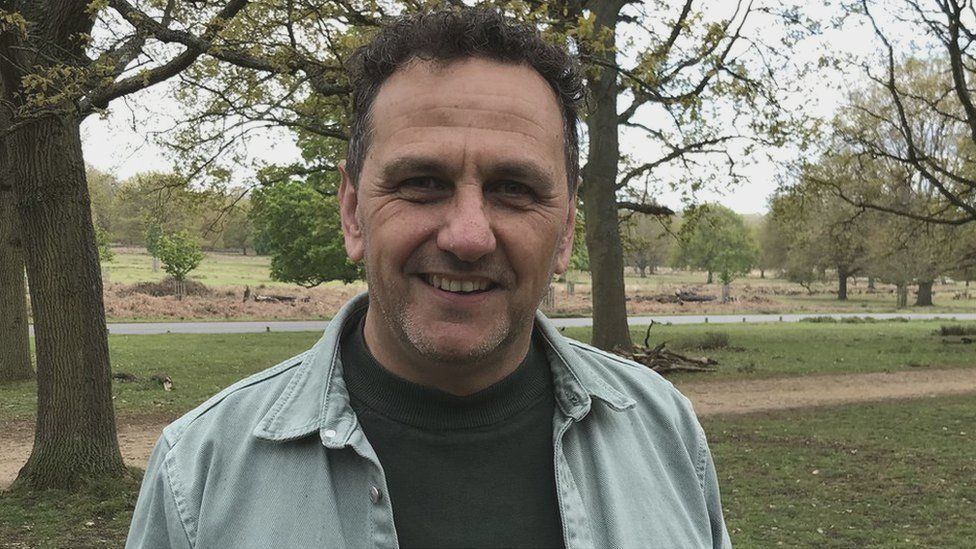A father and a student campaigner are seeking a High Court hearing to consider whether the government should tighten youngsters’ access to porn.
Ioannis Dekas and Ava Vakil want the government to implement proof of age for access to pornography promised in the 2017 Digital Economy Act.
It comes as new research suggests the majority of 16 and 17-year-olds in the UK have recently seen pornography.
The government is currently preparing a new Online Harms Bill.
This bill would go further than the Digital Economy Act, giving the watchdog, Ofcom, powers to block access to online services – including social media platforms and search engines – which fail to do enough to protect children.
Ioannis Dekas, a father of four sons, became concerned after he found one of his boys had accessed pornography.
He said this was a wake-up call for him and his wife as parents, making them confront the potential danger to their son and the impact on them all as a family.
“In the two weeks leading up to this moment, we’d noticed a drastic change in his behaviour, withdrawal, a sense of anger towards his siblings, we could sense frustration in his life.”
When he and his wife talked to their son, they found he was under peer pressure to be familiar with the language of porn.
“What I don’t often hear is how to deal with this. What happens in your household when this happens? With the availability, it’s not a matter of if, but of when.”
Mr Dekas wants the government to put in place the age verification requirements set out in part three of the Digital Economy Act – a law that was passed in 2017.
However, in 2019, the then Digital Secretary Nicky Morgan said the measures would no longer go ahead, with efforts instead focused on the government’s wider Online Harms Bill.
But Mr Dekas says that this bill still has to be brought before Parliament, and may be delayed if detailed regulations need to be drawn up.
In the meantime, children are being exposed to pornography, he says, when they could be protected using the Digital Economy Act’s full powers.

Mr Dekas is bringing the challenge jointly with 20-year-old University of Oxford student Ava Vakil, whose letter about what she described as a culture of sexual violence in some schools went viral online.
Ms Vakil told the BBC: “I think porn is everywhere, and growing up as a young woman I’ve seen the influence of that.
“I think young men are ingesting pornography online to an extent that people aren’t aware of.
“I’m sure everyone, and particularly young women, can look back on so many conversations they’ve had with boyfriends and male friends and think 100% it was impacted by porn.”
The Department for Digital, Culture, Media and Sport said it would not be appropriate to comment on legal proceedings.
A spokesman said the government was committed to protecting children from harmful content.
Porn via social media
The legal action comes as research from City, University of London found many teenagers had seen porn.
Prof Neil Thurman conducted a survey of more than 1,000 16 and 17-year-olds in the UK, using a panel from the specialist market research company Youthsite.
While 63% said they came across porn on social media, 47% said they had also visited porn websites.
The research suggests the government’s approach of widening the range of legislation to more platforms is right, Prof Thurman said.
More worryingly, 46% had used technology that disguises identity when browsing online, such as a virtual private network, and which could allow evasion of age verification.
However, Prof Thurman said this was not a reason not to regulate access.
“It doesn’t mean we shouldn’t bring in legislation,” he said. “Firstly I think it would reduce accidental exposure, particularly for younger children and teenagers, and it does send a signal, not present at the moment, that they are accessing something inappropriate for their age group.”
Vanessa Morse, head of the Centre to End All Sexual Exploitation, said there was a “wealth of evidence” to show that viewing pornography led to harmful sexual attitudes and behaviours.
“The government’s own research, which it published this year, showed an association between porn consumption and real world violence against women. It’s no surprise considering one in eight porn videos contains sexual violence,” she said.
“Pornography has made violent acts in sex completely normalised.”


